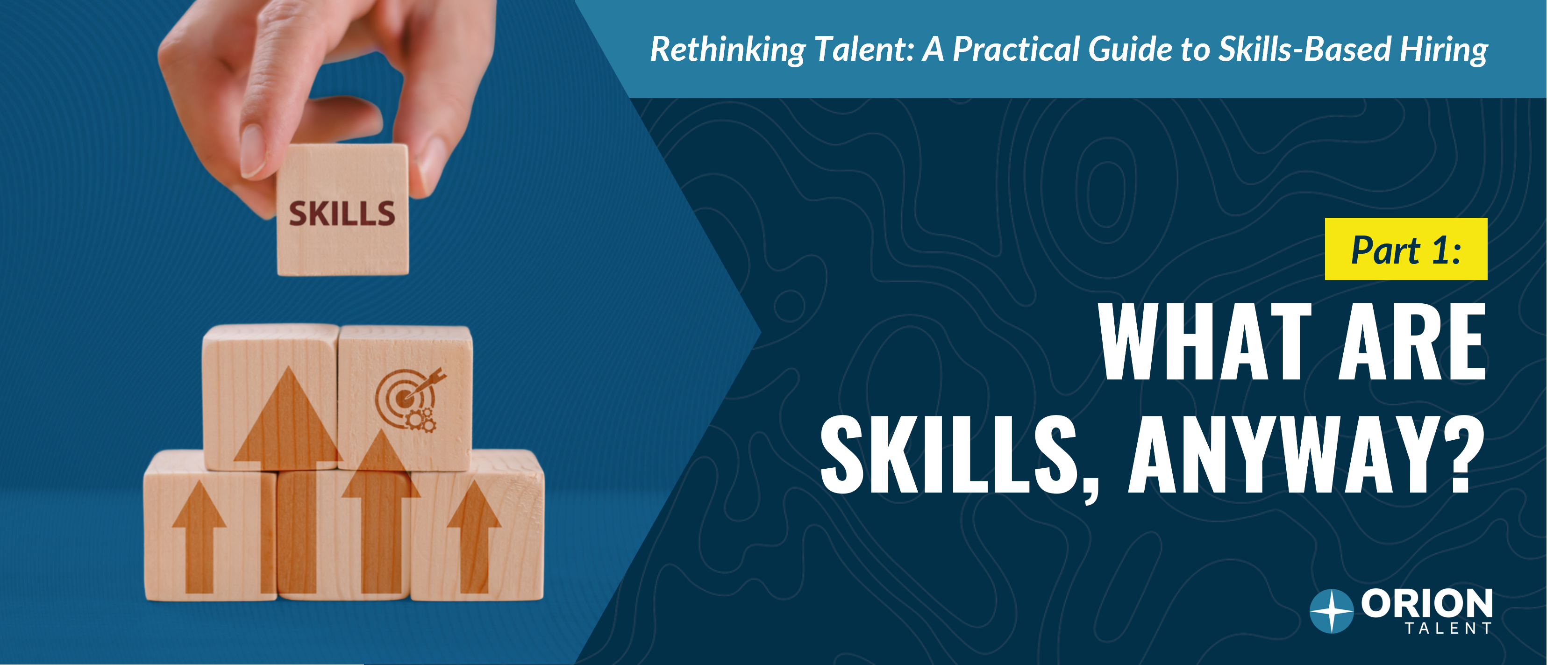When it comes to internal mobility, the days of starting work in the mailroom and ending up in the board room are pretty much over. Today’s innovation based economy relies on specialized talent, and many of the most in-demand jobs require both advanced degrees and specialized on-the-job experience.
That makes it much harder, or even impossible, for junior employees to climb the ladder.
While we’d never advocate hiring someone who wasn’t up to the job, it’s important to keep internal mobility alive and well at your company. Nobody wants to do the same job forever, no matter what they say during their annual review, and retaining your A-Players at all levels of your company will depend on how well you can plan for their future.
Internal Mobility: Does it Exist at Your Company?
“Internal Mobility” is one of those HR phrases that gets thrown around so much that it ends up collecting a whole lot of nonsense around the useful, core definition. Here are the top two definitions of “Internal Mobility” from a Google search that are written in jargon-ese:
“Internal mobility” (a.k.a. mobility and talent mobility) is a dynamic internal process for moving talent from role to role – at the leadership, professional and operational levels.”
And…
“Internal mobility is the procedure, which should be clearly defined by means of a policy, regulating the transfer of employees from a position to another within the same organization.”
Neither of these definitions are quite right. Besides being overly complicated, mobility is a state of being, not a process or a procedure. Making a career move within your company may depend on many separate procedures and policies. Internal mobility is really a measurement of how easy it is for your employees to advance in your organization.
If you are a high mobility organization, it means that your employees are able to advance within your company and make career moves inside of your organization. If you are a low mobility company, it means that you are probably favoring fresh hires over internal promotion and your employees are probably pretty sick of it.
If your employees aren’t mobile, you can bet that they know it.
While some people enjoy doing the same thing every day… forever… other people (especially talented people) want to face new challenges and feel as if they are going somewhere in life.
You may have leadership, development, or mentorship programs in place at your company, but do these programs add up to your employees believing they have a promising future with your company? If your employees don’t believe they have a promising future with your organization, they will find an employer who plans for their future.
Simple as that.
Whether it’s an entry level or senior position, failing to provide internal mobility to your employees will ensure that their next career step is outside of your organization, and maybe even with a competitor.
Everyone can agree that being able to advance in your company sounds good, but many employers are having trouble putting their money where their mouth is. According a recent article from CNBC, “87 percent of companies believe that internal mobility programs would definitely help with retention, yet only one third have these programs.”
Of companies that do offer internal mobility options, employees often feel that they need to keep their intent to apply for new positions within an organization a secret from their current managers. This often causes them to apply for better positions outside of their company.
That’s crazy!
While most executives agree that internal mobility is a strong talent attractor and retention factor, the majority of these executives aren’t actually doing much to help their employees toward their future goals.
With the rise of employer review sites like Glassdoor, companies who falsely claim to provide mobility end up looking pretty bad online. While you’re welcome to keep claiming that your employees have a bright future at your company, this sort of dishonest policy will only result in resentment and negative publicity when your employees realize that they’re in a dead end job. Plus it severely damages your employer brand.
3 Reasons to Give Your Employees a Future
No matter where a job fits into the hierarchy or workflow of your company, you should provide all of your employees with the resources to advance in your organization. Here are the 3 big reasons why mobility is so important for attracting and retaining top talent.
1. Emphasizing Mobility Promotes Stability
Emphasizing internal mobility will go a long way toward decreasing turnover within your organization. Nobody wants to feel like they’re stuck in a dead end job, and employees who feel this way are much more likely to disengage from their work, and ultimately quit as soon as they’ve found a better position.
More internal mobility means less turnover, which means more consistency for everyone. Emphasizing mobility ensures that your most skilled employees don’t feel like you’re ignoring their skills and hard work. When your organization’s senior positions are populated by company veterans, instead of unfamiliar faces, it creates a culture of stability and provides an incentive for employees at all levels to do the best work that they can.
Low mobility will always lead to higher turnover, and high turnover has a demoralizing effect on your employees. Besides the chaos that is created when an important employee decides to quit, high turnover is expensive and very dangerous. When the best people are always leaving your company, it can create a talent vacuum, a space in which only the complacent are able to do your dead end job.
Talented people like to work with other talented people and, if you aren’t allowing your talent to advance, your ability to hire talent in the future will be damaged.
2. A Lack of Internal Mobility Looks Bad
Would you ever apply to a job that included the phrase: “No possibility for advancement?”
Of course not.
Employer review sites make it easy for employees and job seekers to blow the whistle on everything from bad management to a lack of cereal selection in the break room. If you aren’t planning for the future of your employees, then any job seeker who cares to do minimal research on your company will know about it.
While you’re welcome to rely on your “careers” page to tell the story of mobility in your company, your version of the truth had better match with what your employees are saying. If the “official version” conflicts with what your employees testimonials, job seekers will always trust their peers over the copy on your website.
3. It’s Better to Build From the Ground Up
Emphasizing internal mobility at your company will ensure that your organization never loses sight of the key details that add up to the big picture. Too often, the people at the top have very little hands-on experience with the front-line, revenue-generating work that keeps the wheels turning.
This disconnect often leads to unrealistic expectations of front-line workers or changes to policy and procedure that aren’t informed by first-hand experience.
While selling a product doesn’t automatically qualify you to produce or design that product, this sort of sales experience is still useful to have in a builder or designer. If you can provide the resources for your employees to further their skills and education, you can produce senior staff with valuable first-hand experience at multiple levels of your company.
As more jobs are automated, consolidated or replaced with an app, we are coming to see a more specialized workforce. This means that higher education and training will become more important for on-the-job success. Investing in the skills and education of your employees will ensure that your staff has the skills to compete. Additionally, having senor staff who have worked in junior roles will allow for improvements to be made to the way work is done within your organization.
Conclusion
It is more important than ever to emphasize internal mobility at your company. Employer review sites are removing the option to fake this stuff and failing to provide internal mobility will hurt your ability to hire new talent and retain the great talent you already have.
Invest in the mentorship and learning programs that will allow your employees to climb the ladder within your organization, or watch all of your best and brightest flock to your competitors.
Archives
- February 2026
- January 2026
- December 2025
- November 2025
- October 2025
- September 2025
- August 2025
- July 2025
- June 2025
- May 2025
- April 2025
- March 2025
- February 2025
- October 2024
- May 2024
- March 2024
- February 2024
- January 2024
- December 2023
- November 2023
- October 2023
- September 2023
- August 2023
- July 2023
- June 2023
- May 2023
- April 2023
- March 2023
- February 2023
- January 2023
- December 2022
- November 2022
- October 2022
- September 2022
- August 2022
- July 2022
- June 2022
- May 2022
- April 2022
- March 2022
- February 2022
- January 2022
- December 2021
- November 2021
- October 2021
- September 2021
- August 2021
- July 2021
- June 2021
- May 2021
- April 2021
- March 2021
- February 2021
- January 2021
- December 2020
- November 2020
- October 2020
- September 2020
- August 2020
- July 2020
- June 2020
- May 2020
- April 2020
- March 2020
- February 2020
- January 2020
- December 2019
- November 2019
- October 2019
- September 2019
- August 2019
- July 2019
- June 2019
- May 2019
- April 2019
- March 2019
- February 2019
- January 2019
- December 2018
- November 2018
- October 2018
- September 2018
- August 2018
- July 2018
- June 2018
- May 2018
- April 2018
- March 2018
- February 2018
- January 2018
- December 2017
- November 2017
- October 2017
- September 2017
- August 2017
- July 2017
- June 2017
- May 2017
- March 2017
- February 2017
- January 2017
 RSS Feed
RSS Feed




















